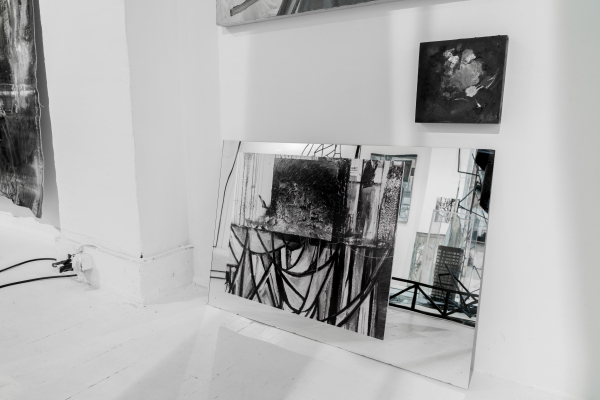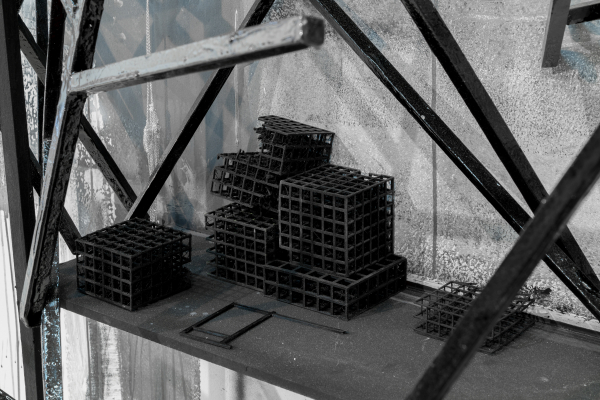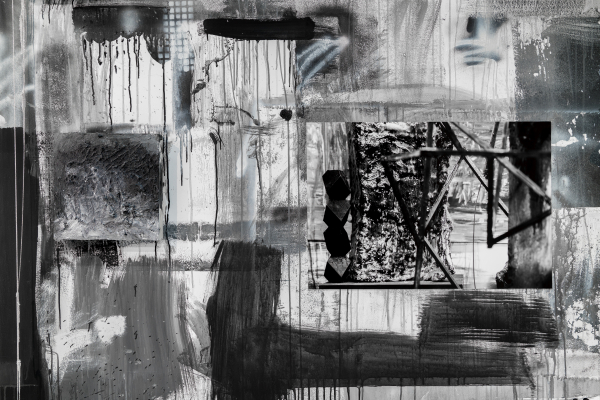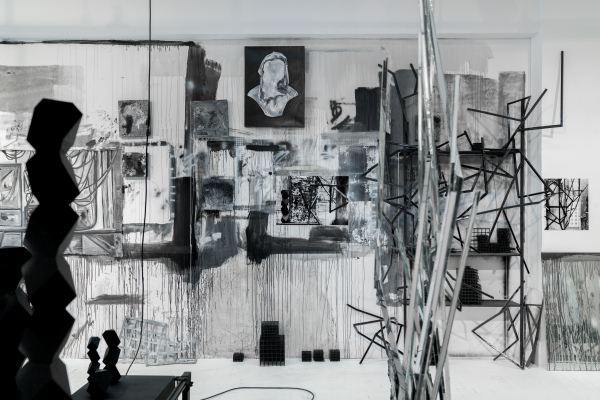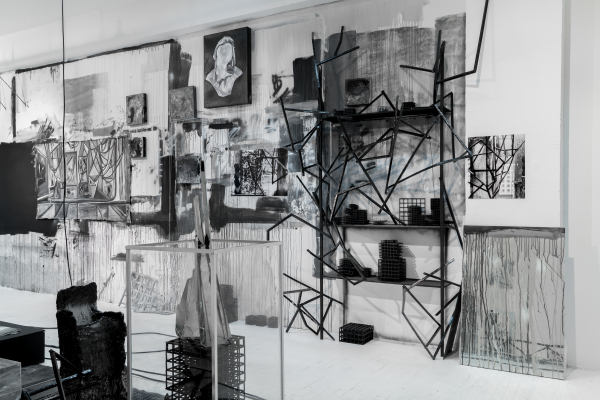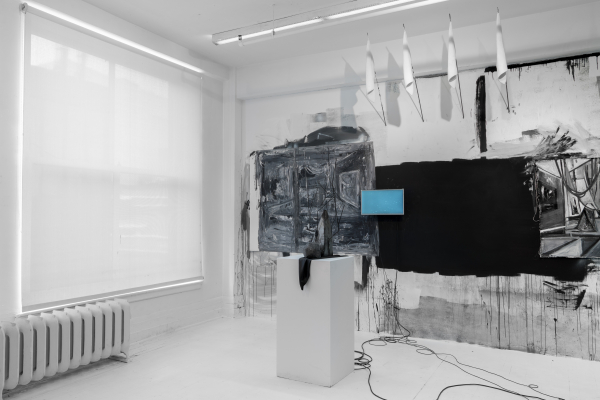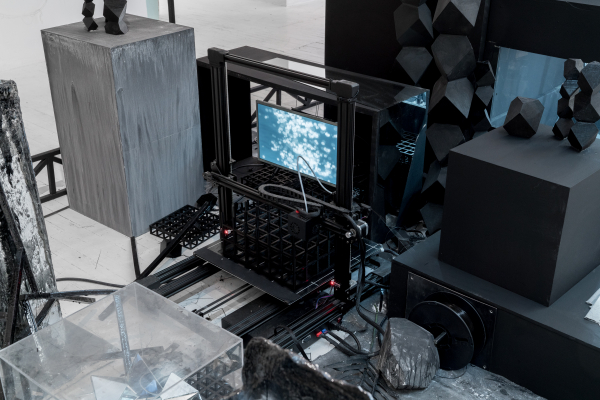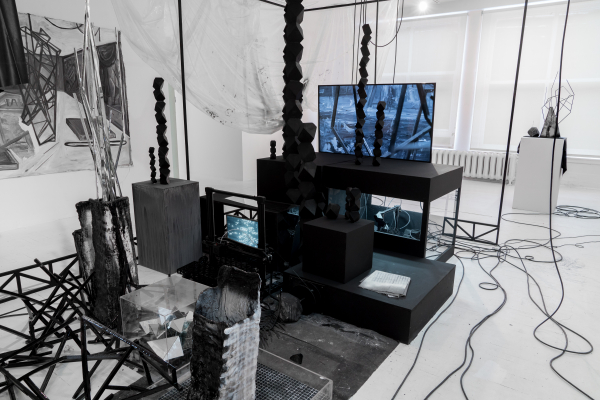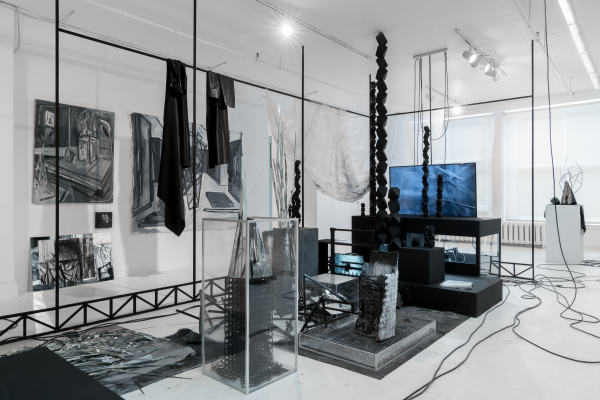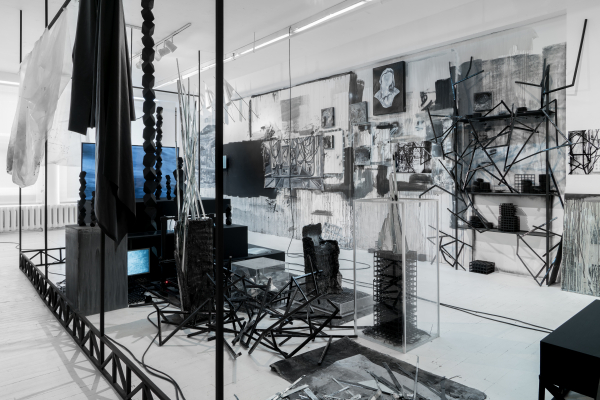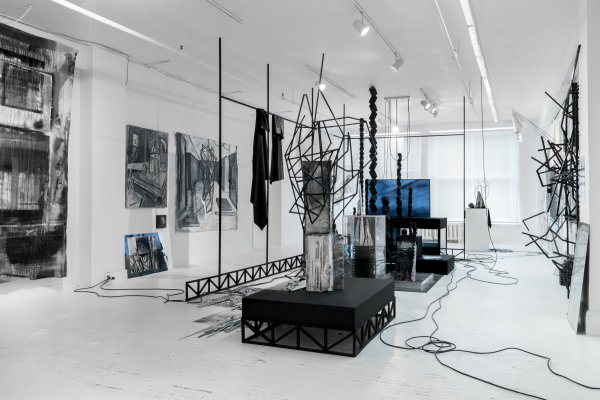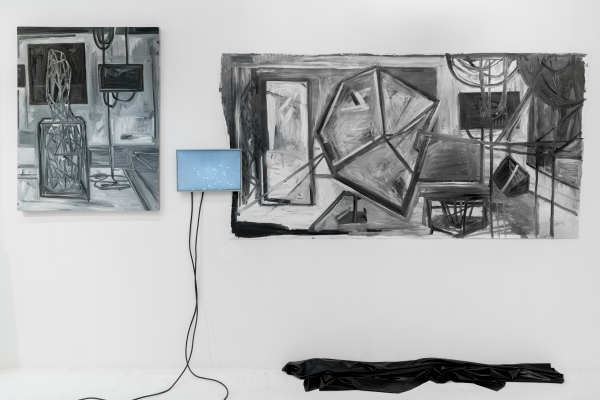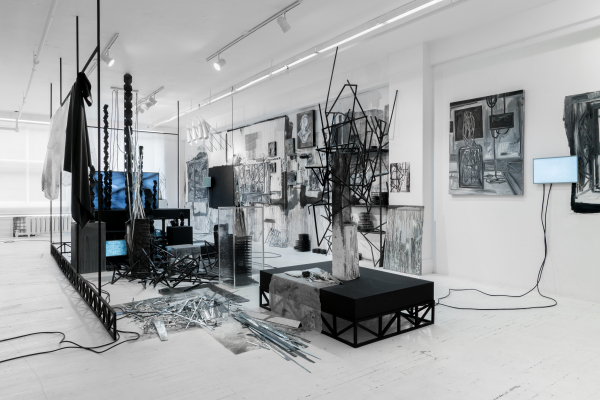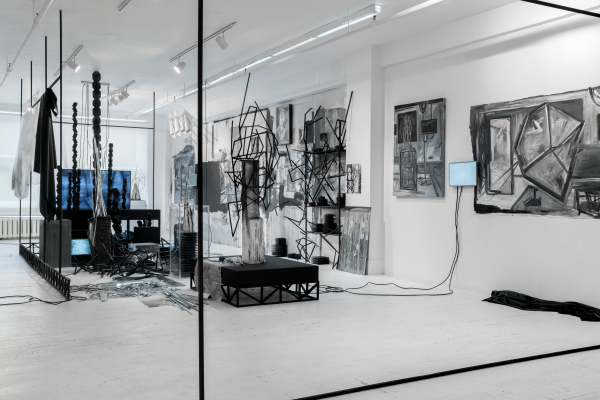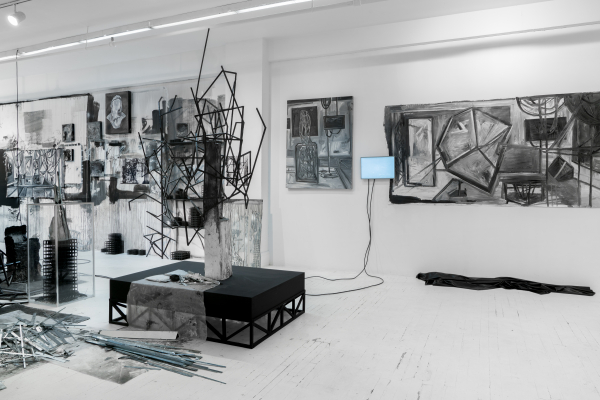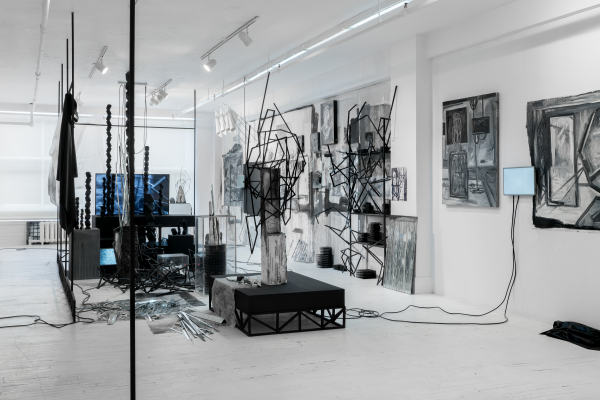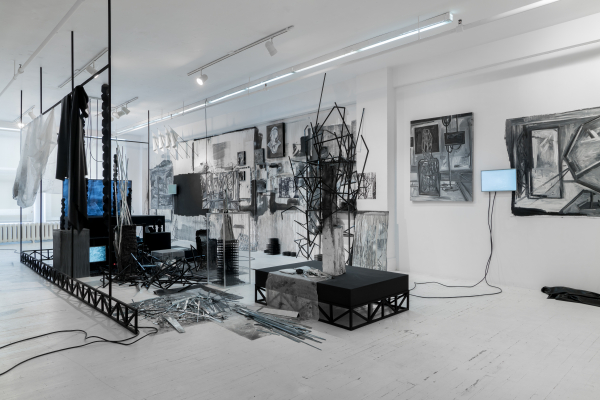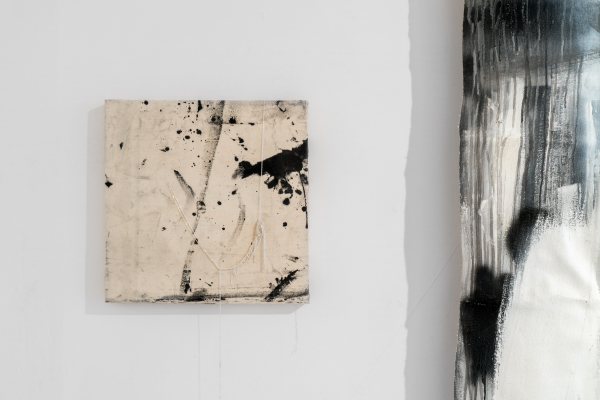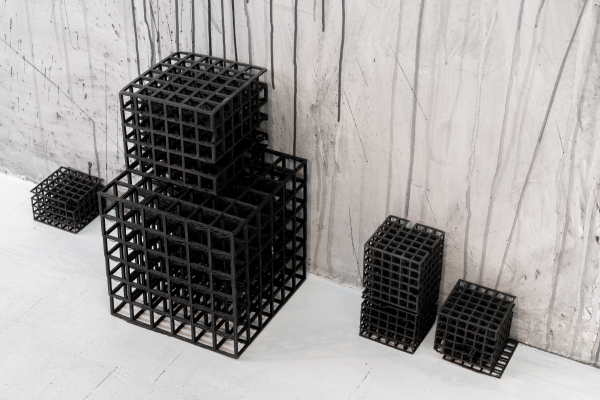As if it was yesterday
- Simon Bilodeau
-Gallery I-
SIMON BILODEAU
As if it was yesterday
In keeping with the futuristic aesthetics and ruins that underpin his work, Simon Bilodeau presents As if it was yesterday,an exhibition resembling a sketch of an unseen past. Imagined as a dystopian showroom, the work is intended to be a mise en abyme of a constantly evolving universe, with possible tomorrows still to be invented. A memorial space for these futures that are under construction – but already in the throes of obsolescence – each element of this new multidisciplinary body of work thus questions our collective fascination with progress and its often-disappointing promises of a better world. Without being fatalistic but having a melancholy air, the artist proposes a new iteration of his art that casts a shrewd eye towards the future and its goals.
The paintings, sculptures and videos here are not to be understood as ends in themselves, but rather as universes of potentialities, reminiscences of becoming. At the same time performative and theatrical, the installations are presented as kinds of models, as prototypes of other installations, of other potential works. Staged and presented in ways reminiscent of the bombastic dioramas of natural history museums, the works embody many self-regulating systems capable of organization. This is because, in fact, a large part of Bilodeau’s creative process is left up to the works themselves. Some of the works seem to move within the space, like slightly humanoid machines, chaotic and clumsy entities that are capable of constantly regenerating and recreating themselves. Mirrors of themselves, they show what is being done, as it is being done … or being undone.
The motif of the workshop, recurrent in the artist’s practice, crystallizes here in the self-referentiality of making the work and its mechanisms of construction and destruction. Far from being perceived as errors or mistakes to be eliminated, the perpetual failures of the creative process, on the contrary, tell about how the work is conceived. Perhaps this is why Bilodeau’s disturbing installations exude an impression of vitality, of obstinacy even, as if every structure, even when torn apart in space, struggles to ensure its survival. For a long while such concerns have been flooding the reflections of this technophile artist, highlighting the irreducibility of technologies to the very foundations of art and of life.
Reciprocal relationships between art and its modes of existence are embodied through these small sculptural forms scattered throughout the gallery space. Appearing like a kind of stalagmite composed of piled up rhomboid motifs, these strange and tortuous concretions recall Brancusi’s columns, obelisks symbolizing the very essence of life. Although Bilodeau’s sculptures do not refer explicitly to the mystical symbolism of the axis mundi like those of Brancusi, they nonetheless invoke the notion of the absolute in which the whole is greater than the sum of its parts.
Without attempting to be philosophical, the exhibition has an evocative capacity that transcends aesthetics and raises questions of an existential nature, encouraging us to rethink our relationship to the world. Playing with the fatalism and latent apathy of the apocalyptic scenarios that now characterize our contemporaneity, As if it were yesterday is statement about humanity’s resilience towards thepast, which always will be only the trace of a future combined with the present.
Artist Biography
Simon Bilodeau holds a bachelor’s and a master’s degree in visual and media arts from Université du Québec à Montréal. His work questions the finery of art, its objects and its stories. Through a multidisciplinary and critical practice, he focuses on issues that affect the various social, aesthetic and philosophical spheres. Bilodeau addresses the concerns our contemporary existence, which is often filled with contradictions and uncertainties. Constantly evolving, his work has been the subject of solo and group exhibitions in Quebec and internationally.
Author Biography
Anne-Marie Dubois is a doctoral candidate in art history with a concentration in feminist studies. The focus of her research is the contemporary re-structuring of identities in the era of “new technologies.” She is an art critic and essayist and is on the editorial board of esse arts + opinions magazine. Her stance takes critical potential from feminist and queer theories in order to demystify the ontological claims of various discourses.

